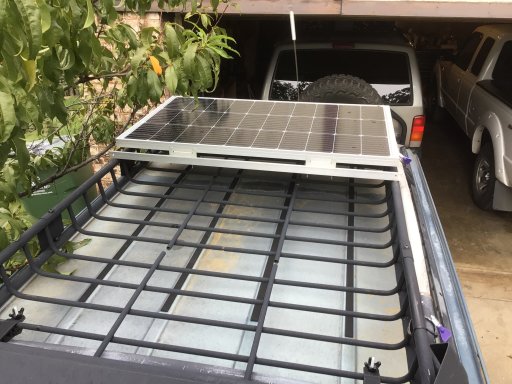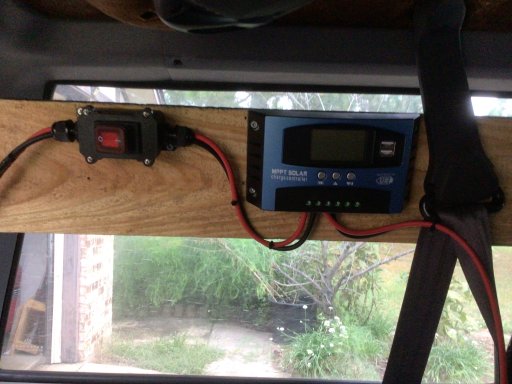
Enthusiast III
Finished my install of my solar panels to run my fridge when I'm off grid. And easy to remove if I want to use cross bars for some thing else
Attachments
-
1.6 MB Views: 29

Enthusiast III

Member III

Protector III
20111
Looks good. Good idea to use the crossbars.Finished my install of my solar panels to run my fridge when I'm off grid. And easy to remove if I want to use cross bars for some thing else

Protector III
20111
A solar system in an Overlander rig is a step towards self-sufficiency. If you are on the road every day, charging the batteries via the alternator is usually sufficient. However, if you are on longer trips and have extended periods of camping somewhere without driving, you will need an additional power supply. But with a shore power connection, you are dependent on a certain infrastructure. A power pack will eat up space in the rig and needs recharging also anyway. A solar system, on the other hand, offers an independent power supply. Once installed, it usually does its job quietly for many years. And you have power without additional running costs, and the solar system itself is low-maintenance.I've been considering similar, but what's the advantage here of panels rather than just having, say, a 500W Jackery to run the fridge at night and just run the fridge off alternator/main battery power during the day? Just less load on the alternator?
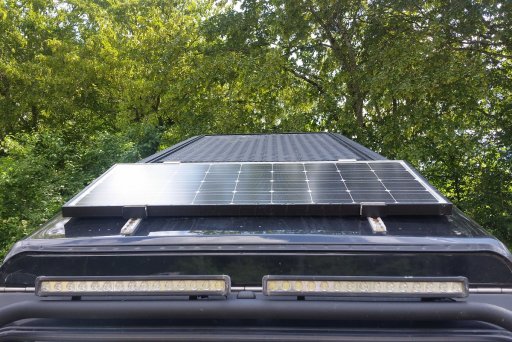

Enthusiast III
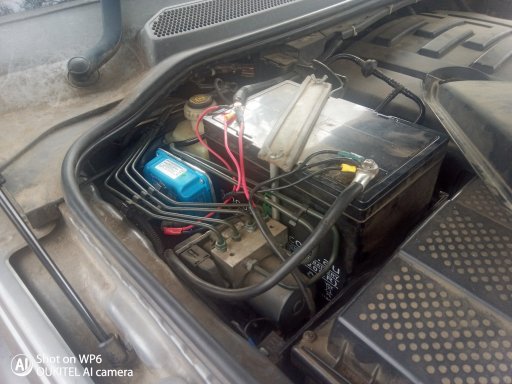
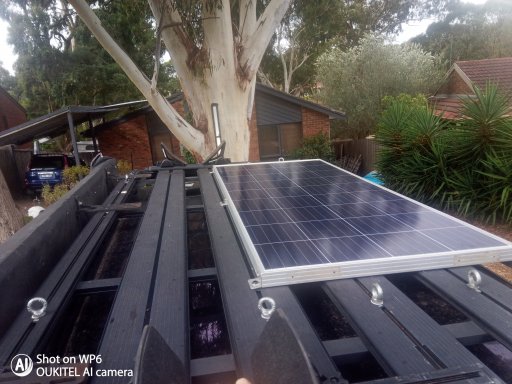

Off-Road Ranger I
0745
For us it was all about space and stowage room. Those portable juice contraptions are fine for a 2-3 day weekend, any longer it would just be a pita to be dragging around. We used a mounted solar panel 100 watts, and a sun chaser panel 100 watts with dual 100ah AGM batteries and a Renogy controller for over 12 years to keep two fridges running and topping off the batteries. Didn’t have to think about it very much, it just all worked. Now? As full timers we are cranking 250 watts mounted and a 200 watt sun chaser panels with 3 lithium batteries providing 485 ah. Yup, it’s a big system, but over the decades I have found that the longer you stay out, the more power is wanted, not needed, wanted, as having electric capacity at camp is, after all, a luxury.I've been considering similar, but what's the advantage here of panels rather than just having, say, a 500W Jackery to run the fridge at night and just run the fridge off alternator/main battery power during the day? Just less load on the alternator?

Enthusiast III
Can never have too much solar or battery capacity, being able to get up in the morning and flick on an electric kettle for that first coffee or tea is priceless.For us it was all about space and stowage room. Those portable juice contraptions are fine for a 2-3 day weekend, any longer it would just be a pita to be dragging around. We used a mounted solar panel 100 watts, and a sun chaser panel 100 watts with dual 100ah AGM batteries and a Renogy controller for over 12 years to keep two fridges running and topping off the batteries. Didn’t have to think about it very much, it just all worked. Now? As full timers we are cranking 250 watts mounted and a 200 watt sun chaser panels with 3 lithium batteries providing 485 ah. Yup, it’s a big system, but over the decades I have found that the longer you stay out, the more power is wanted, not needed, wanted, as having electric capacity at camp is, after all, a luxury.

Member III
